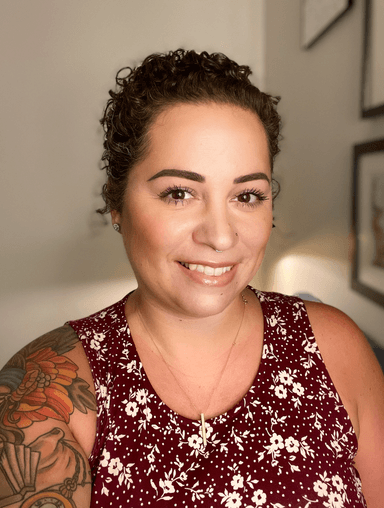
Since she was a child, Twala Lockett-Jones sought out ways to create community. At 10 years old, using the extra materials from her father’s home project, she constructed a backyard clubhouse.
“It was for the neighborhood. The other kids and I would put on shows and have gatherings in the clubhouse. They could come to the clubhouse to feel safe and like they belonged,” says Lockett-Jones, broker-owner of Lockett-Jones Realty Group in Kalamazoo, Mich. At the time, she didn’t realize that’s what she was doing, she adds. “But I remember wanting everyone to have a place where they could just come and be together.”
Creating a safe space for others remains a throughline in Lockett-Jones’ life and work. One of 11 children, she had many influences and support around her, but it was her sister, Robin, whom Lockett-Jones looked up to the most. “I wanted to do everything she did, and she worked in real estate.”
Read more stories of REALTORS®’ extraordinary service to their communities at the REALTORS® Are Good Neighbors Facebook and Instagram pages. Don’t forget to share your volunteer story.
At age 18, Lockett-Jones joined her sister as a receptionist at the same brokerage. She worked for Willie Mae Pierson, the first African American real estate broker in Kalamazoo, who was instrumental in making homeownership a reality for the Black community in the 1960s and beyond. Lockett-Jones saw Pierson’s passion and wanted to fuel her own.
An entrepreneur and working toward equity for Black and Brown people through real estate, Lockett-Jones continued her work in creating safe spaces for others. When the COVID-19 pandemic hit in 2020, and the real estate industry all but shut down for a time, she switched gears and wrote a children’s book called Princess Mackie Buys a House, a story about a young Black girl who wants to buy a castle so she can paint her bedroom pink. Princess Mackie faces a few obstacles but is intent on making her dream a reality. The book focuses on building financial literacy at the middle school level.

“The book sparked nationwide interest,” Lockett-Jones says. The National Association of Real Estate Brokers, the Mortgage Bankers Association and the National Hispanic Real Estate Brokers wanted to share the book with their members.
The book also sparked something in Lockett-Jones, who had always been surrounded by people with helpful, necessary skills. “My dad was a jack of all trades. He could lay brick, and when I built my clubhouse, I was using the materials that he had left over from a siding project. My husband is a licensed builder. I realized that I always shy away from power tools and these projects and let my husband do everything, and I know a lot of young women are in the same boat.”
An entrepreneur in real estate who relied on tradespeople with skills, Locket-Jones started questioning the larger meaning of the connections she was making. “I knew that women and girls are so underrepresented in the trades and entrepreneurship and real estate,” she says. “I had a lot of time to sit with these issues, and I started asking myself what I could do about it.”
The goal, she says, was to increase Black homeownership and empower underserved communities to see the possibilities they have in trades, STEM, real estate and entrepreneurship. In her community, a lot of women grew up without a father figure to teach them these things. “So, I said, ‘We can empower girls to learn to do these things themselves.’”
Lockett-Jones’ nonprofit, Girls Build Kalamazoo, gives young BIPOC girls the opportunity to see themselves in careers and roles that they’re historically absent from. Through community partnerships with area tradespeople, businesses and organizations, Girls Build Kalamazoo allows for hands-on experience in the trades, entrepreneurship and real estate. In its first project, the girls worked alongside a tradesman to build a bench. He had previously built a tiny home, so the girls went on a field trip to see the home and learn more about how it was built.
“At first, I wanted all women teaching the girls, but as I watched them work alongside this tradesman, it was like a father working with his daughter. He was acting as a positive role model, and I realized that maybe that’s what they needed, too,” Lockett-Jones says.
The program builds skills and confidence in girls, giving them insights and access to a future they might not have realized was possible for them. They work on projects and learn from business leaders, getting a sense of what it takes to succeed.
The program also gives the larger Kalamazoo community an opportunity to see the girls in a different light. “These are amazing young women with gifts and talents and skills, and now other professionals all across industries get to see that,” Lockett-Jones says.
The community has rallied around Girls Build Kalamazoo, providing grants, resources and partnership. Local businesses want to participate and bring the girls hands-on training and education. Lockett-Jones is excited for the organization’s future.
“The girls are having these incredible experiences that they otherwise may not have. A lot of them don’t usually leave their immediate area,” she says. “This year, the girls get to go to a parade of homes so they can see housing outside their neighborhoods. I want them to see what a million-dollar house looks like. I want them to see that they can dream.”









